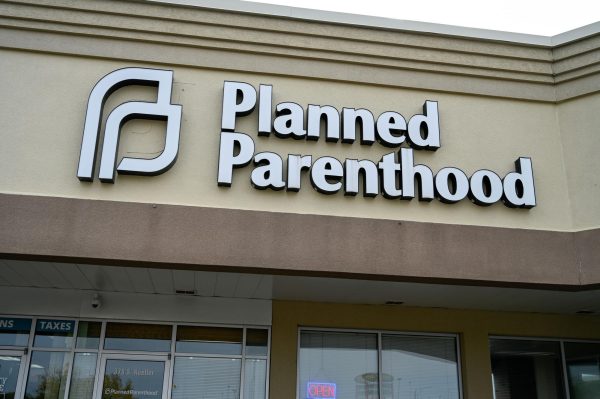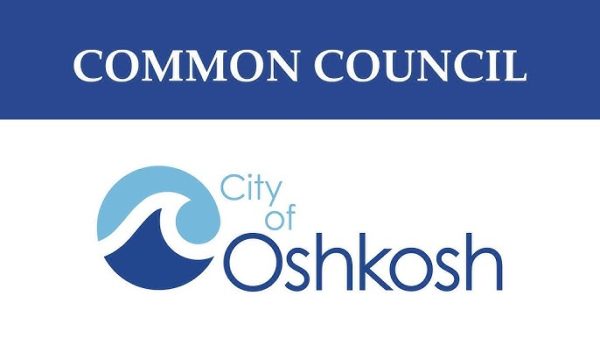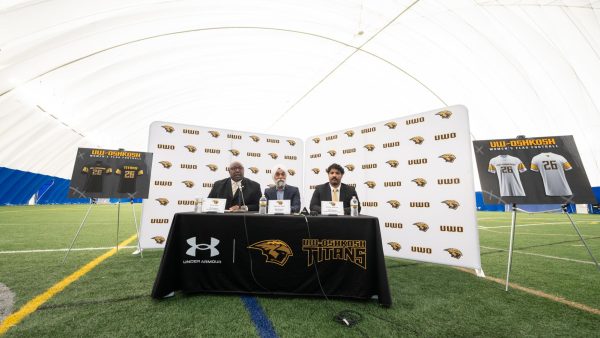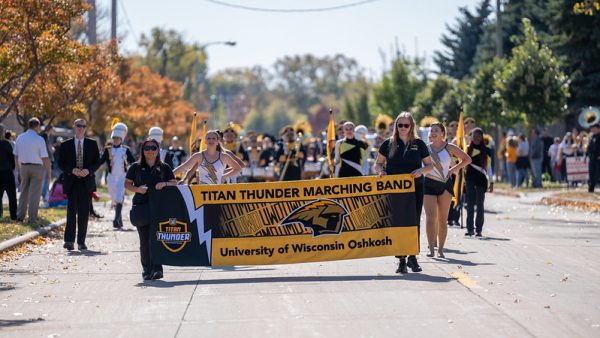Polk Library budget cuts
Cuts to Polk Library’s budget over the last decade have left UW Oshkosh “far behind” its peer institutions in both staffing and collections, Polk Library Director Sarah Neises said.
“The chancellor has been transparent about the financial recovery process the campus is experiencing,” Neises said, adding that the provost works with them to establish the percentage they need to reduce from their budget.
Polk Library’s spring newsletter, published earlier this month, detailed the most recent list of cuts to its digital subscriptions. Since the library’s base budget has been cut every year for the last decade, directors and staff are forced into the position of deciding how to degrade their collections.
Neises said in today’s digital era, subscription-based resources are increasingly harder for the library to afford when they receive these collection cuts.
“What is shocking is how our library vendors increase their prices 4-5% every year, which is way beyond inflation,” she said.
Cuts to the library’s materials budget are now felt immediately due to the access model of today’s electronic resources, Neises said.
“At one time, of course, when we purchased books, journals and media, we owned them and could access them until they wore out,” Neises said. “Now, like other online subscription services — Spotify, Netflix, etc. — when we no longer can afford to renew, we lose access to everything we enjoyed before. This model is by far responsible for most of our resources.”
Neises said the electronic resources help gather data about how often library resources are used.
“The data tells us that users value our full text articles, streaming videos and e-books,” she said. “Subject specific background sources are valued by users who need unique content that is not duplicated elsewhere.”
Associate professor of music Julia Chybowski said when she found out about these cuts, she contacted Neises in hopes she would consider resubscribing to Oxford Music online, an important reference for her teaching and the music department at UWO.
“Ms. Neises explained that they were forced into the difficult position of degrading library collections because of continual cuts to the library’s base budget — every year for a decade our University administration has cut the library’s budget,” Chybowski said. “This, combined with rising subscription costs charged by academic publishers, puts the library staff in a terrible position.”
Neises said every part of the campus is experiencing cuts, and all UWO students will be affected in some fashion. With tuition being frozen for so many years, programs will experience significant inflation and suffer.
“The average student will see less full-text article availability, so they may need to allow more time to place interlibrary loan requests,” Neises said. “Upper-level students will not be able to rely on resources they have used in the past. If students are writing papers the night before they are due, they will have fewer options to satisfy their immediate research needs.”
Neises said the frustrating part of this is the effect it has on library hours. With the decision to decrease staff members, it makes it much harder to keep Polk open for longer hours that students might be seeking.
“What frustrates me most is that by cutting collections, faculty and student research opportunities are diminishing,” Neises said. “It is frustrating that we are at a 40-year low in staffing. This makes it more difficult to maintain the library hours students want and to provide the research assistance they need.”
Chybowski said at the end of the day, these cuts affect staff morale and put a damper on academic creativity on campus going forward.
“The broader context here is that faculty morale is low because we are continually being asked to do more with less,” Chybowski said. “The latest cuts to library resources feels akin to the cuts to travel funding for conference presentations and the increase of teaching load for faculty in the College of Letters and Science. Practically speaking, these measures all make it harder to accomplish quality, peer-reviewed research and creative work, even though these are essential activities for professional academics and integral to the UWO mission.”









